Filter by
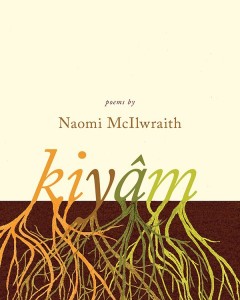
kiyâm
Through poems that move between the two languages, McIlwraith explores the beauty of the intersection between nêhiyawêwin, the Plains Cree language, and English, âkayâsîmowin. Written to honour her father’s facility in nêhiyawêwin and her mother’s beauty and generosity as an inheritor of Cree, Ojibwe, Scottish, and English, kiyâm articulates a powerful yearning for family, history, …
- Edition
- -
- ISBN/ISSN
- 9781926836690.01
- Collation
- -
- Series Title
- Mingling Voices
- Call Number
- 178 pages
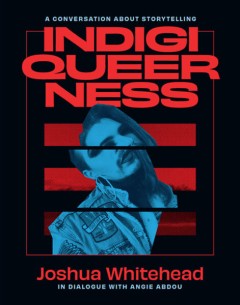
Indigiqueerness A Conversation about Storytelling
Evolving from a conversation between Joshua Whitehead and Angie Abdou, Indigiqueerness is part dialogue, part collage, and part memoir. Beginning with memories of his childhood poetry and prose and travelling through the library of his life, Whitehead contemplates the role of theory, Indigenous language, queerness, and fantastical worlds in all his artistic pursuits. This volume is imbued with …
- Edition
- -
- ISBN/ISSN
- 9781771993913.01
- Collation
- -
- Series Title
- -
- Call Number
- 5.5 x 7, 96 pages
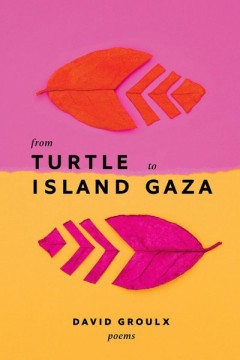
From Turtle Island to Gaza
With a sure voice, Groulx, an Anishnaabe writer, artistically weaves together the experiences of Indigenous peoples in settler Canada with those of the people of Palestine, revealing a shared understanding of colonial pasts and presents.
- Edition
- -
- ISBN/ISSN
- 9781771992619.01
- Collation
- -
- Series Title
- Mingling Voices
- Call Number
- 5 x 7.5, 68 pages
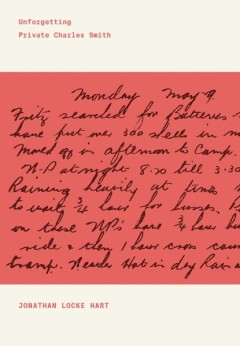
Unforgetting Private Charles Smith
Private Charles Smith had been dead for close to a century when Jonathan Hart discovered the soldier’s small diary in the Baldwin Collection at the Toronto Public Library. The diary’s first entry was marked 28 June 1915. After some research, Hart discovered that Charles Smith was an Anglo-Canadian, born in Kent, and that this diary was almost all that remained of this forgotten man, who lik…
- Edition
- -
- ISBN/ISSN
- 9781771992534.01
- Collation
- -
- Series Title
- -
- Call Number
- 4.5 x 6.5, 80 pages
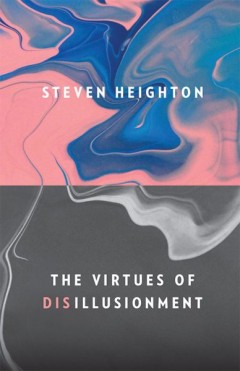
The Virtues of Disillusionment
Most people go through life chasing illusions of success, fame, wealth, happiness, and few things are more painful than the reality-revealing loss of an illusion. But if illusions are negative, why is the opposite, being disillusioned, also negative? In this essay based on his inaugural writer-in-residence lecture at Athabasca University, internationally acclaimed writer Steven Heighton mathema…
- Edition
- -
- ISBN/ISSN
- 9781771993265.01
- Collation
- -
- Series Title
- -
- Call Number
- 5 x 8, 48 pages
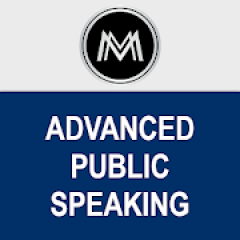
Advanced Public Speaking
This advanced public speaking textbook is designed to encourage you as a speaker and to help you sharpen your skills. It is written to feel like you are sitting with a trusted mentor over coffee as you receive practical advice on speaking. Grow in confidence, unleash your personal power and find your unique style as you learn to take your speaking to the next level--polished and professional.
- Edition
- -
- ISBN/ISSN
- -
- Collation
- -
- Series Title
- -
- Call Number
- 800 MEA a
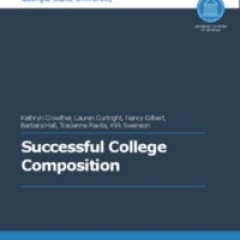
Successful College Composition
In her book On Writing, Eudora Welty maintains: “To write honestly and with all our powers is the least we can do, and the most.” But writing well is difficult. People who write for a living sometimes struggle to get their thoughts on the page; even people who generally enjoy writing have days when they would rather do anything else. For people who do not like writing or do not think of…
- Edition
- -
- ISBN/ISSN
- -
- Collation
- -
- Series Title
- -
- Call Number
- 420 WEA s
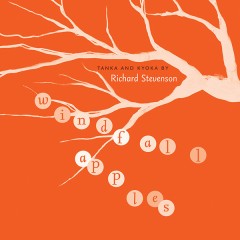
Windfall Apples Tanka and Kyoka
The venerable tanka and her upstart cousin kyoka mingle with Kerouac’s American pop haiku in five-liner imagist poems and linked sequences. In Windfall Apples, Richard Stevenson mixes east and west with backyard barbecue and rueful reflection.
- Edition
- -
- ISBN/ISSN
- 9781897425886.01
- Collation
- -
- Series Title
- -
- Call Number
- 129 pages
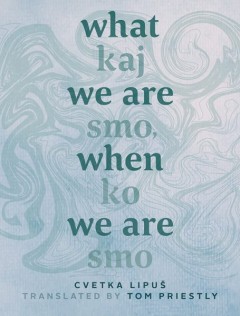
What We Are When We Are Kaj smo, ko smo
Working within a postmodern style, this rhythmic and melodious collection of poems originally written in Slovenian by Cvetka Lipuš and translated here by Tom Priestly, blends the real with the surreal, dull urban lives with dreams. Lipuš, known for the lexical beauty of her work, dwells on topics of time and space which she handles in an almost revolving, irreverent manner. Priestly captures …
- Edition
- -
- ISBN/ISSN
- 9781771992497.01
- Collation
- -
- Series Title
- -
- Call Number
- 5.5 x 7.25, 104 pages
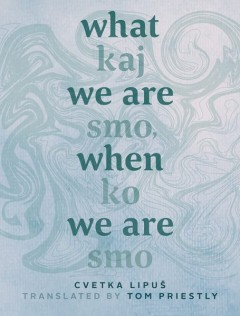
What We Are When We Are Kaj smo, ko smo
Working within a postmodern style, this rhythmic and melodious collection of poems originally written in Slovenian by Cvetka Lipuš and translated here by Tom Priestly, blends the real with the surreal, dull urban lives with dreams. Lipuš, known for the lexical beauty of her work, dwells on topics of time and space which she handles in an almost revolving, irreverent manner. Priestly captures …
- Edition
- -
- ISBN/ISSN
- 9781771992497.01
- Collation
- -
- Series Title
- -
- Call Number
- 5.5 x 7.25, 104 pages
 Computer Science, Information & General Works
Computer Science, Information & General Works  Philosophy & Psychology
Philosophy & Psychology  Religion
Religion  Social Sciences
Social Sciences  Language
Language  Pure Science
Pure Science  Applied Sciences
Applied Sciences  Art & Recreation
Art & Recreation  Literature
Literature  History & Geography
History & Geography